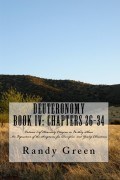Affluenza and Penuritis – Part 2
HOT OFF THE PRESS!!! Romans: Volume 9 of Heavenly Citizens in Earthly Shoes is now available from CreateSpace (paperbacks) and Kindle (eBooks). Click on the link to the right of this page to go to Amazon and place your order.
Keep deception and lies far from me, give me neither poverty nor riches; feed me with the food that is my portion, that I not be full and deny You and say, “Who is the Lord?” or that I not be in want and steal, and profane the name of my God [Proverbs 30:8-9].
Yesterday we noted the concept of parallelism in Proverbs 30:8-9. Let’s diagram the two verses now and see what this means.
The location of the verse break between v.8 and v.9 is unfortunate. The first parallel ideas are marked off by the semicolon and read, Keep deception and lies far from me, give me neither poverty nor riches. Here’s the diagram:
A. deception
B. lies
B. poverty
A. riches
Note the letters “A” and “B” before each of those four words. The two “A’s” go together, as do the two “B’s”. The parallelism is between the “A’s” and the “B’s”. It is not a comparison but a contrast, making this antonymous parallelism. On the one hand is affluenza, on the other penuritis. They are opposites.
The remainder of vv.8-9 define how the two “A’s” and the two “B’s” fit together. Following our diagram “riches” are “deceptive” to the writer, while “poverty” leads to “lies”. Let’s consult the remaining words of the verses and see just what the writer’s was alluding to.
The phrase “feed me with the food that is my portion” goes with both ideas expressed in the remainder of verses 8-9. The phrase is the writer’s prayer to the Lord that He give him only his daily bread, no more and no less. The phrase “the food that is my portion” refers to what he requires for each day, one day at a time. Now let’s diagram the remaining two concepts.
A. I am full
B. I am in want
A. I deny my need for the Lord
B. I steal and so profane the Lord’s name
Remember, the phrase “feed me with the food that is my portion” goes with both of these ideas.
If the Lord allowed the writer to experience affluenza, instead of giving him just the amount he needed (i.e., “my portion”), then he would be full. In this case he would have no need, which leads sinful man to depend on himself, thus denying his need for the Lord. That is how the two “A’s” of v.8 fit together with verse 9. His riches deceive him, you see.
Contrariwise, if the Lord, allowed the writer to experience penuritis, instead of giving him just the amount he needed (i.e., “my portion”), then he would be tempted to steal and thereby blaspheme the name of the Lord upon him. This is how the two “B’s” in v.8 fit together with verse 9. His hunger and other needs would be a temptation to him to take matters into his own hands and fill his needs by hook or by crook.
Moses broached these selfsame concepts in Deuteronomy 8:16-18. I suggest you turn there in your Bibles and read it. This is an ongoing concern with sinful man, bringing with it the infestation of either affluenza or penuritis. I doubt any of us would consciously volunteer as Guinea pigs for medical research into the two diseases.
I have a wonderful idea. Let’s make use of the writers own words and invoke them as our prayer to the Lord right now. How about it?
To further research this issue, I direct you to my book Deuteronomy: Volume 5 of Heavenly Citizens in Earthly Shoes. To purchase my books please go to:
http://www.amazon.com/Randy-Green/e/B00507WC86
Filed under: Church Age Tagged: affluence, affluenza, Deuteronomy 8, penuritis, penury, poverty, pride, Proverbs 30






